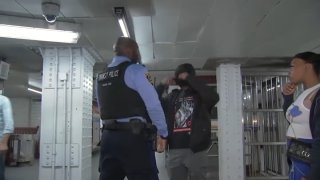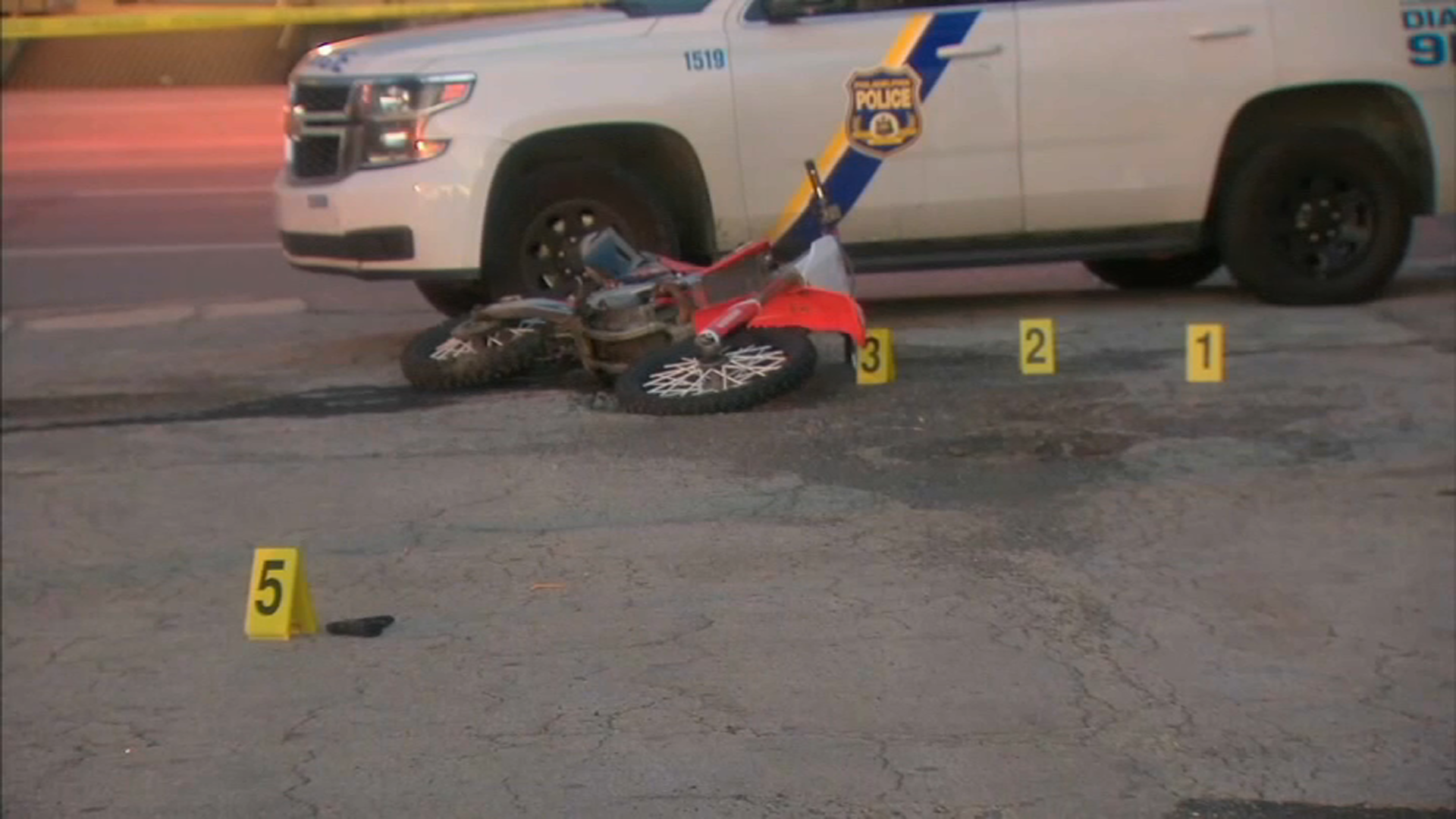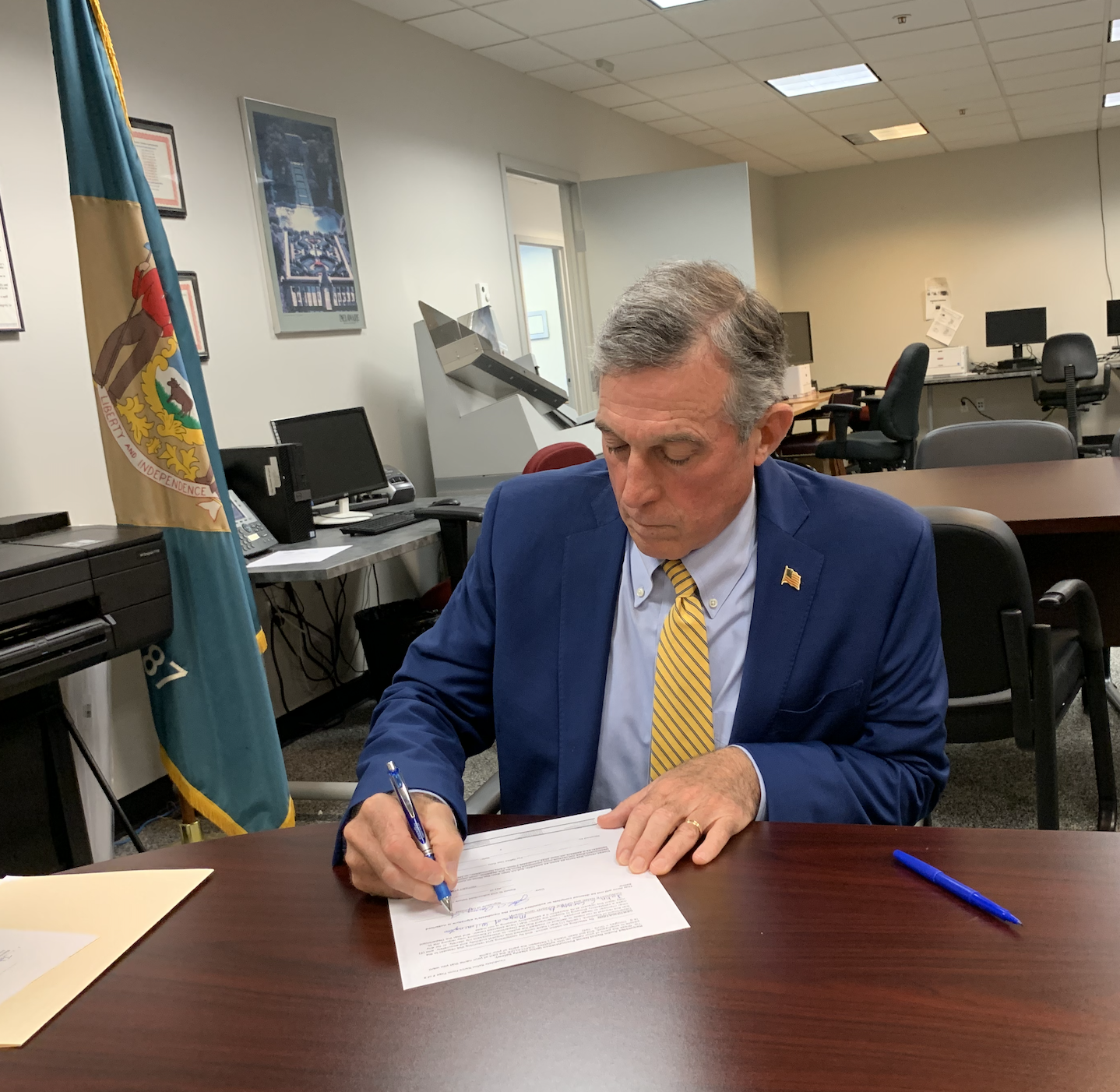
For Leem Washington, ski masks aren’t just a fashion accessory that protects his face from the biting cold of Philadelphia winters — they also keep him from being a victim of mistaken identity.
“In Philly, you have to pick your poison,” said Washington, 19, noting that growing up in West Philadelphia, one of the most crime-plagued parts of the city, has left him in a constant state of “paranoia.” Ski masks, he said, are a form of protection from being wrongly identified for a crime by police or retaliation from people looking to settle a neighborhood vendetta.
Washington said he has lost several friends to gun violence and had run-ins with police that easily could have escalated, and he refuses to be yet another statistic.
Get Philly local news, weather forecasts, sports and entertainment stories to your inbox. Sign up for NBC Philadelphia newsletters.
“You have to either walk around and protect yourself or walk around and be a victim,” said Washington, who is Black.
That’s why when the Philadelphia City Council cited crime as the reason for a ban on ski masks or balaclavas in public spaces late last year, many criminal justice advocates and young people like Washington objected to the new regulation.
Now, nearly four months after the contentious ban became law, police officers have yet to put together a comprehensive plan to enforce it, according to local officials. The lack of clarity about the new regulation, which advocates argue is supposed to reduce violence, has only worsened division over the ban, critics say.
“At some point we have to make bold decisions,” said council member Anthony Phillips, who first proposed the ban in June, adding that something needed to be done to address what he considers unchecked lawlessness in the city.

Marquise Francis / NBC News
Phillips’ original bill noted at least three incidents in Philadelphia since 2021 in which gunmen wearing ski masks shot and killed people, including 15-year-old Devin Weedon, who was on his way to school in May when he was fatally shot during a fight with three people. No one has been arrested or charged in the killing. The new law says people can be fined up to $250 for wearing ski masks in prohibited locations and $2,000 if masks are worn while committing crimes.
Local
Breaking news and the stories that matter to your neighborhood.
“This bill was created because we can’t just have no face, no trace,” Phillips said.
Phillips, however, was unable to provide NBC News with data to show how the ban would reduce crime, and he had no polling to support the ban’s popularity in the city. He said the new police chief has been instructed to prioritize community policing efforts before anything else.
“We still have some work to do,” Phillips acknowledged.

Marquise Francis / NBC News
Philadelphia police declined to answer questions about the ban’s enforcement, instead referring to their previous statements at a City Council hearing Nov. 14, when Deputy Commissioner Francis Healy said the police department “fully supports the intent and rationale behind this ordinance,” adding, “The enforcement can be complicated.”
‘A ski mask doesn’t equal crime’
Legal experts question the constitutionality of the law altogether, raising concerns around due process and selective enforcement under the 14th Amendment.
Solomon F. Worlds, an attorney for the American Civil Liberties Union of Pennsylvania, called the ban a “dog whistle” used to stoke fear.
“A ski mask doesn’t equal crime,” Worlds said. “A store owner might feel safer, but they won’t be safer.”
Worlds said officers have yet to enforce the ban because it opens the police department to potential litigation that could further implicate it in an ongoing lawsuit dating to 2010. In Bailey v. City of Philadelphia, a federal class action lawsuit, the ACLU sued the city on behalf of eight Black and Latino men, alleging a pattern of stopping and frisking thousands of people without legal justification and of systemic racial bias in the city’s execution of the practice. The policing tactic, dating to 1968, was statistically unsuccessful in reducing crime and uncovering weapons in major cities across the country. Data later revealed that young Black and Latino men were overwhelmingly targeted.
In 2020, the city of Philadelphia admitted the practice was a driver of racial disparities and “systemic racial bias,” according to court documents.
A growing number of businesses in Philadelphia, the country’s sixth-largest city, have signs on their glass doors that read “No ski masks allowed” or decals with an “X” through an image of a ski mask. Residents and business owners who support the law say the ban makes them feel safer by removing the threat of any facial disguise that makes them uneasy.
Critics of the ban, however, balk at the notion that it will do anything to reduce crime in the city. Teenagers and young people who wear ski masks say they wear them for a host of reasons — from protection against the cold to fashion to, in most extreme cases, survival.
Jared Cooper, 24, a Philadelphia resident, says he regularly wears a ski mask to protect his face from the wind as he skateboards or simply to be in his own world. He called the ban “a joke.”
“It’s just put in place to make people feel like they’re doing something so that they can neglect the responsibility they need to take in order to actually change Philadelphia,” said Cooper, who is a youth advocate for the nonprofit Youth Art & Self-empowerment Project, which fights to end youth incarceration.
Washington was one of several teens who spoke out against the ban at a hearing in November, saying it was important to have a voice in the conversation that, he felt, was being left out. He cautions against drawing a direct correlation between ski masks and crime.
“Not everybody that’s wearing a ski mask is out to put [someone] in danger,” he said. “The person wearing a ski mask might be in danger, so that’s why they’re wearing the ski mask. You don’t want to be seen in certain areas or do you want to be seen by certain people.
“Would you rather them carry around ski masks or would you rather them carry around a firearm?” he added.
A spate of deadly, high-profile shootings last month had the city on edge, but overall, violent crime in Philadelphia last year was down across the board compared to the previous year, while property crime increased significantly, according to city data. And so far in 2024, there had been 70 homicides through Monday, a 34% decrease over last year. (Not all homicides are crimes.)
Cara McClellan, director of the Advocacy for Racial and Civil Justice Clinic and a practice associate professor of law at the University of Pennsylvania Carey Law School, called the ban a “distraction” that criminalizes behavior in lieu of reducing violence through a research-based approach.
More than a dozen states have their own versions of ski mask bans, according to the Free Speech Center, a nonpartisan educational center at Middle Tennessee State University devoted to building understanding of the First Amendment. However, any evidence that banning ski masks reduces crime remains elusive.
In Atlanta, a proposed ski mask ban was shot down in the City Council over resident opposition.
Philadelphia at-large council member Kendra Brooks, one of just two members of the City Council to vote against the ban, said the law has too many “what-ifs” left up to the discretion of police that could do more harm to a community than protect it.

Marquise Francis / NBC News
“I come from the stop-and-frisk generation, and I’m still traumatized by it,” Brooks said, saying the ban seems to prioritize one group’s safety over another’s.
“We’re creating a situation where a subset of folks feel safer and another subset of folks are pushed into unsafe situations in fear,” she said. “Whose fear is more important?”
Council member Jamie Gauthier said she was initially going to vote in favor of the ban until she heard teens speak out against it.
“I could not reconcile hearing young people who are like my son talking about how this ban would make this a harsher city for them,” she said. “We need police to focus on the most productive activities, not criminalizing people for their fashion choices.”
This story first appeared on NBCNews.com. More from NBC News:



